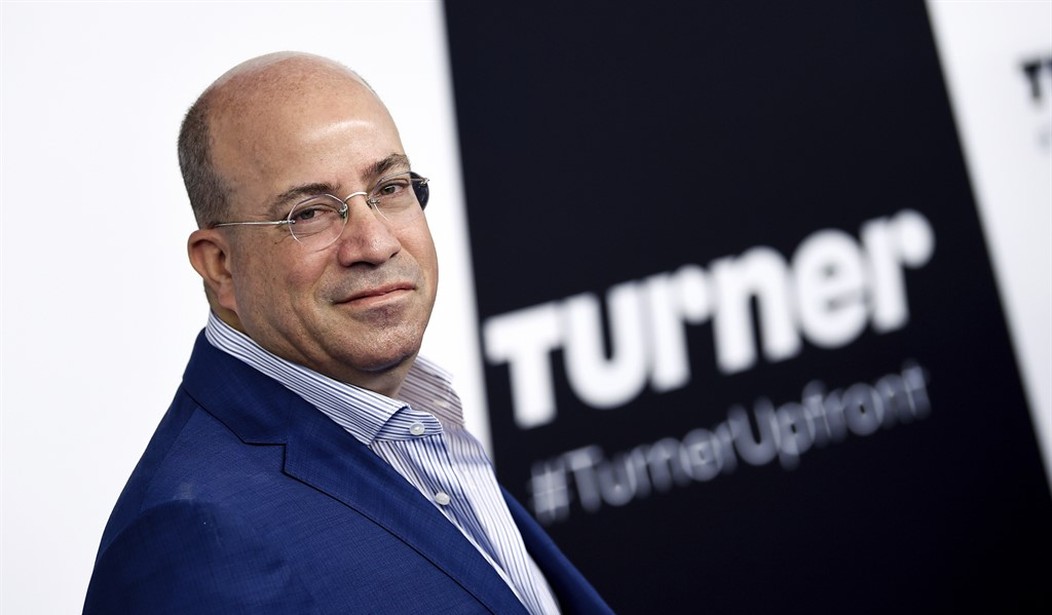Sheer speculation, or something more? Buried in a profile of CNN president Jeff Zucker and the network’s feud with Donald Trump and the White House, the New York Times slips in a suggestion that the administration might target a merger involving the network as retribution. The allegation appears to be based on a single, anonymous source in the White House:
Starting on last year’s campaign trail, the president and his aides have accused the network of bias and arrogance, an offensive that heated up again in January after CNN reported on the existence of a secret dossier detailing a series of lurid accusations against Mr. Trump. The network’s reporters now routinely joust with Mr. Trump’s press aides, and Jim Acosta, a White House correspondent, recently denounced the administration’s use of off-camera briefings as an affront to American values.
White House advisers have discussed a potential point of leverage over their adversary, a senior administration official said: a pending merger between CNN’s parent company, Time Warner, and AT&T. Mr. Trump’s Justice Department will decide whether to approve the merger, and while analysts say there is little to stop the deal from moving forward, the president’s animus toward CNN remains a wild card.
Mr. Zucker, who was ousted as chief executive of NBCUniversal after that company merged with Comcast, declined to comment on the pending deal, except to say that the merger had not affected his journalistic or management choices. “It’s not something I think about,” he said, adding that he had not discussed the proposed acquisition by AT&T with Jeffrey Bewkes, the chief executive of Time Warner.
Is there more to that allegation? If true, it would arguably be an abuse of power by the president — assuming that the DoJ didn’t stop the merger for better reasons than to stick it to CNN and its owners.Could Trump torpedo the merger? Possibly, although he’d have to come up with a better excuse than CNN’s “fake news” track record. Mergers get blocked on the basis of competition in marketplaces and consumer protections, none of which has to do with CNN’s performance or personnel. Needless to say, a court would take a very dim view of any such attempt, and as we’ve seen with the travel ban, federal courts have used Trump’s public rhetoric to impute motives when administration policy decisions are implemented. They’d have a field day on this one, and the DoJ likely already knows that.
It hardly seems like a serious threat, and it’s worth noting that the NYT doesn’t take it very seriously either. Burying that news in the 12th paragraph of what is essentially a background piece is an odd editorial choice, and the piece itself offers no follow-up reporting on any such plans. It gets treated like a throw-away line, which strongly suggests that it should have been thrown away altogether.
The deal has prompted bipartisan opposition in Congress, resting on concerns over AT&T’s existing power in both control and distribution of content to consumers:
The US Justice Department is deliberating over the merger. It is the only federal agency reviewing the deal, according to a June 27 report from the television-industry trade publication Broadcast & Cable, which also reported Republican Sen. Susan Collins of Maine had concerns about the deal that were not related to Trump or CNN specifically.
Separately, Senate Democrats have taken issue with the merger. Sen. Al Franken of Minnesota was one of several lawmakers who signed a letter to the Justice Department asking it to squash the deal if it finds that the downsides outweigh the benefits to consumers.
Sens. Elizabeth Warren, Richard Blumenthal, Maria Cantwell, and Cory Booker also signed the letter, as well as Bernie Sanders, the independent senator from Vermont.
Perhaps, though, Republicans should take a harder look at mergers in general, not just this present example. The traditional GOP policy on mergers and acquisitions has been laissez-faire, which prompted consolidations in a number of industries — defense, banking, finance, and communications, among others. This has given rise to huge corporations whose influence outweighs that of smaller players in markets, and leads to rent-seeking behaviors in Washington.
A party that wants smaller government and market-based economics has to prevent large players from overwhelming both. The anti-trust arena is one that conservatives and populists should give a very hard review for opportunities to bolster innovation and reduce government interventions and carve-outs. But that doesn’t end with the AT&T/Time Warner merger, and shouldn’t have started with it, either.








Join the conversation as a VIP Member